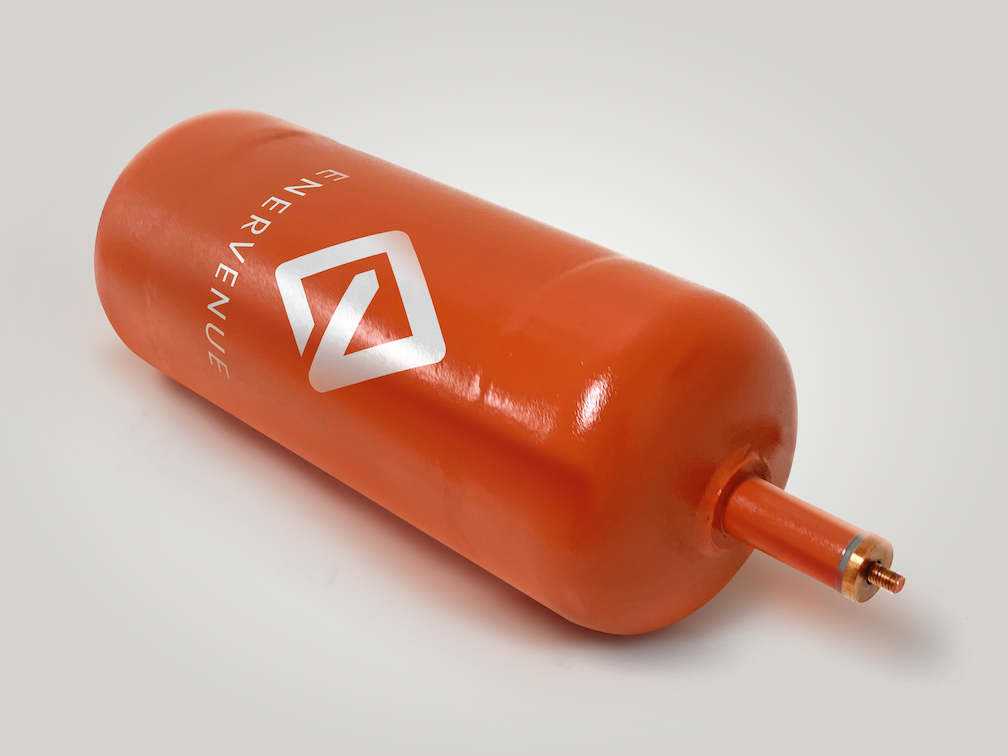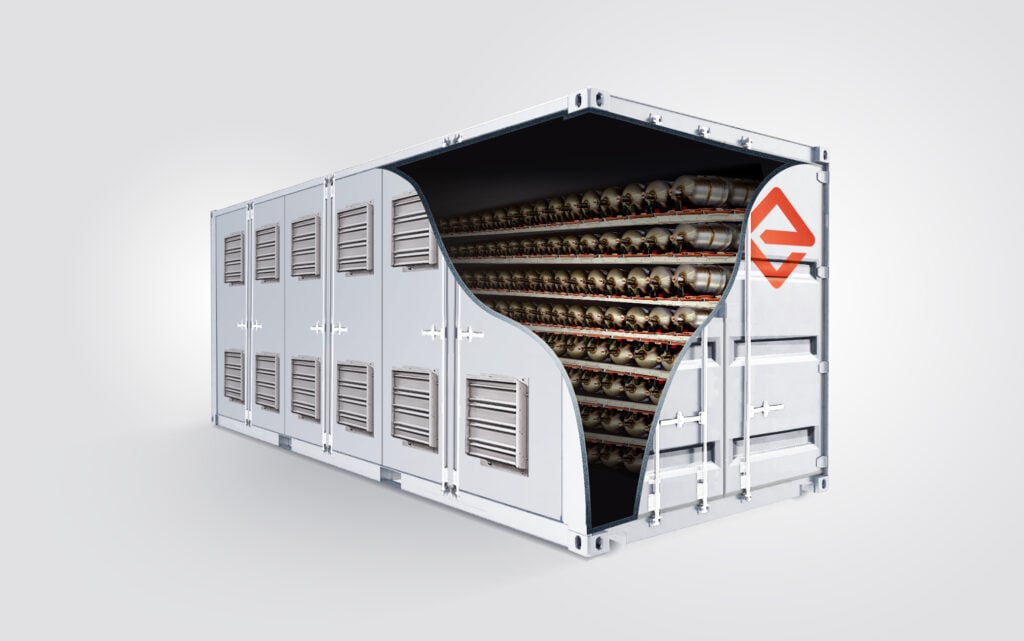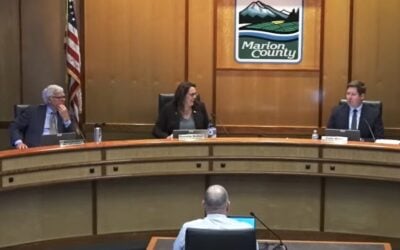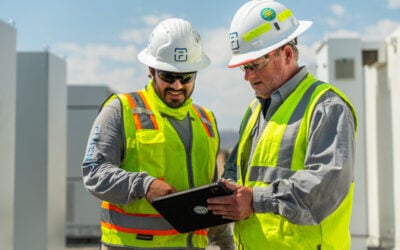

Enervenue has completed UL9540A testing for its nickel-hydrogen electrochemical energy storage cells, units and systems and has also obtained UL1973 certification.
The California-headquartered company has adapted an energy storage technology more commonly used in space programmes for commercial use on earth, making it more affordable and bringing it to mass manufacturing.
Enjoy 12 months of exclusive analysis
- Regular insight and analysis of the industry’s biggest developments
- In-depth interviews with the industry’s leading figures
- Annual digital subscription to the PV Tech Power journal
- Discounts on Solar Media’s portfolio of events, in-person and virtual
Claiming to have received more than 7GWh of customer orders to date, Enervenue is set to open a factory with 1GWh annual production output in Kentucky by the end of this year. The company intends to invest more than US$1 billion to later ramp up the gigafactory to more than 20GWh annual production capacity.
Targeting all segments from small residential to large-scale utility and commercial and industrial (C&I) in between, in order to meet the needs of the growing market for energy storage, UL testing and certification is a must for Enervenue, as it is for pretty much every technology company in the sector.
The claimed advantages of the nickel-hydrogen technology include safe operation at very low or high ambient temperatures, flexibility to go from high to low charge and discharge rates and cost-effectively provide storage durations of 2 hours to 12 hours with low requirements for the balance of system equipment.
Perhaps the most attractive feature is the battery’s ruggedness – it is designed for an operational lifetime of about 30 years, or equivalent to 30,000 cycles of charging and discharging, without degradation. The manufacturer has already rolled out a 20-year, 20,000 cycle warranty for its batteries, which comprise stacks of the Enervenue Energy Storage Vessel, a 1.2kWh ‘cell’, connected in series or parallel.
What are UL9540A and UL1973?
UL9540A data and findings are considered the industry standard for informing customers on fire safety of electrochemical energy storage technologies. Major lithium BESS players Wärtsilä and Fluence have revealed findings of their latest tests recently, both claiming them to be favourable.
The testing regime, primarily developed to assess the safety of lithium-ion battery tech, examines what happens when a battery cell goes into thermal runaway and then assesses how well designed the cells and rest of the system are to prevent a thermal event from propagating i.e., spreading, into other cells and other parts of the system.
Testers force a cell into thermal runaway, carrying out the test at progressively larger scales from cell upwards.
There isn’t a ‘pass or fail’ criteria, but test findings are widely shared and increasingly recognised as a critical piece of information when it comes to the bankability of an energy storage technology.
Other recent examples of this include Chinese lithium battery manufacturer CATL starting to conduct its own UL9540A tests in partnership with UL Solutions.
Enervenue said no flames were observed from its Energy Storage Vessels when thermal runaway was induced during testing. Unlike Li-ion cells that do flame, the Vessels do not require additional protection, the company claimed.
Enervenue CEO Jorg Heinemann said in a previous interview with Energy-Storage.news that this means the technology is not only safe, but also compact enough to be placed into even tight spaces in residential or commercial properties.
Meanwhile, the amount of nickel it uses is small enough for the company to not be anticipating production bottlenecks, the CEO said. Enervenue believes its technology “can beat lithium-ion,” according to Heinemann, with mass production making it increasingly cost-competitive.
UL1973 certification is awarded for energy storage systems proven to be operable safely, which includes evaluation of the system’s ability to tolerate abuse. Again, as such it is considered crucial to the bankability of energy storage products and solutions.
Flow battery providers ESS Inc and Invinity Energy Systems and liquid metal battery startup Ambri are among other non-lithium battery tech players like Enervenue to have gotten their UL1973 certifications.
To learn more about UL9540A, watch our webinar with IHI Terrasun, featuring experts from DNV and QPS, ‘What experts think you should know about UL9540 codes and standards for battery storage,’ and to learn more about UL1973, watch our webinar with CSA Group, ‘Assessing the impact of updates to UL1973 for stationary energy storage systems’.






